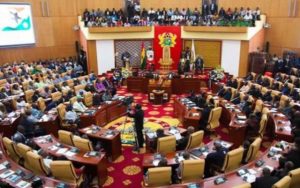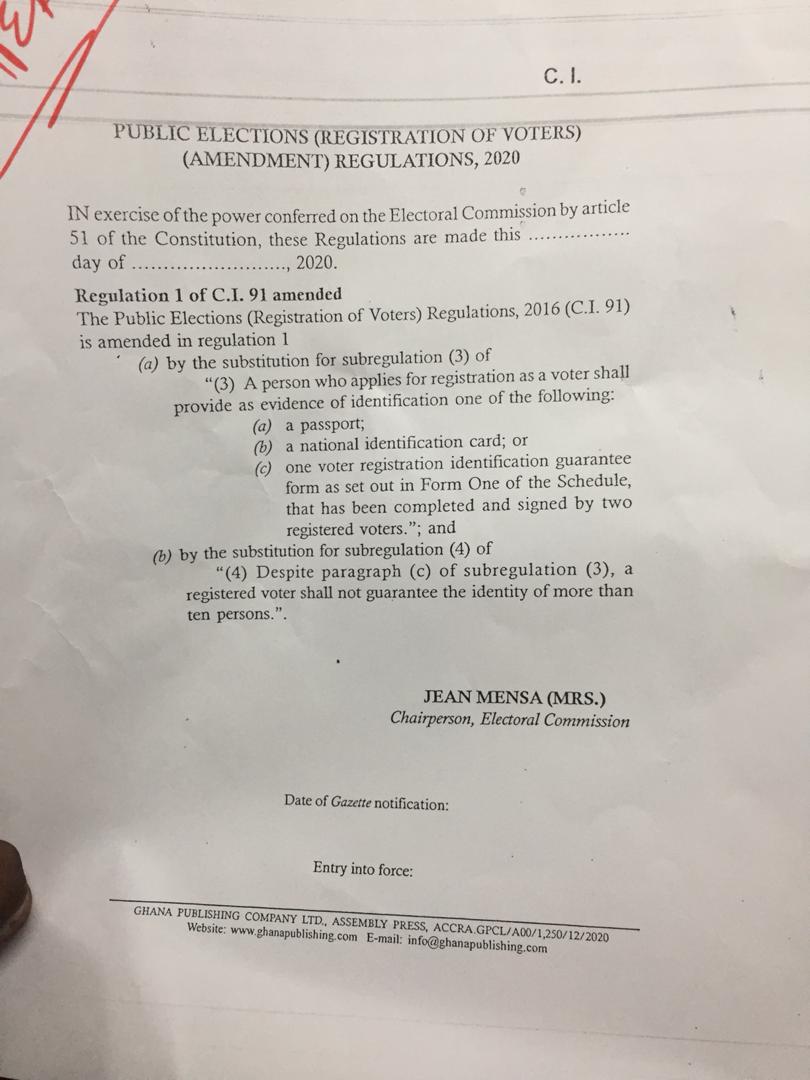 The Electoral Commission (EC) has presented to Parliament a Constitutional Instrument to amend C.I 91 to make Ghana card or passport acceptable documents for registration onto the voters’ register.
The Electoral Commission (EC) has presented to Parliament a Constitutional Instrument to amend C.I 91 to make Ghana card or passport acceptable documents for registration onto the voters’ register.
Alternatively, persons who have already registered to acquire the new voters’ card can guarantee for others to register.
The Instrument is currently under consideration with the subsidiary legislation committee.
Barring any unforeseen circumstance, the C.I will mature in 21 sitting days.

The Commission is set to compile a new electoral roll on April 18 despite intense public and political resistance.
The Resistance has been sceptical of the EC’s ability to conduct the exercise within the limited time available for the December 7 national polls.
Groups against decision
The plan to compile a new register ahead of the general elections in December has over time sparked up a lot of controversies, with many parties and groups disagreeing to the move.
The Inter-Party Resistance Against New Voter Register, a group made up of the Progressive People’s Party (PPP), Convention People’s Party (CPP), People’s National Convention (PNC), Eagle Party, All People’s Party (APC), Great Consolidated Popular Party (GCPP) and the National Democratic Congress (NDC) have on several occasions demonstrated to express their disappointment against the EC’s decision.
Eighteen Civil Society Organisations (CSOs) have also rejected the Electoral Commission’s proposal to compile a new electoral roll ahead of the 2020 elections.
The CSOs are Ghana Anti-Corruption Coalition (GACC), IMANI Africa, SEND Ghana, Africa Centre for International Law and Accountability (ACILA), Financial Accountability and Transparency – Africa (FAT-Africa), Media Foundation for West Africa (MFWA), Youth Bridge Foundation, West Africa Civil Society Institute (WACSI), Citizens Movement against Corruption (CMaC) and Human Rights Advocacy Centre (HRAC).
These groups have cited the reason for their rejection as among other things, a waste of the taxpayers’ money.
They rather want the EC to update the current software rather than procuring a new one.



